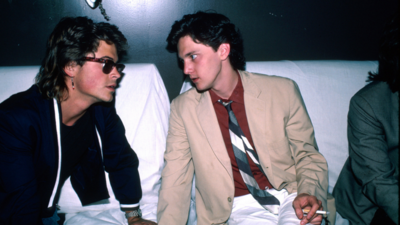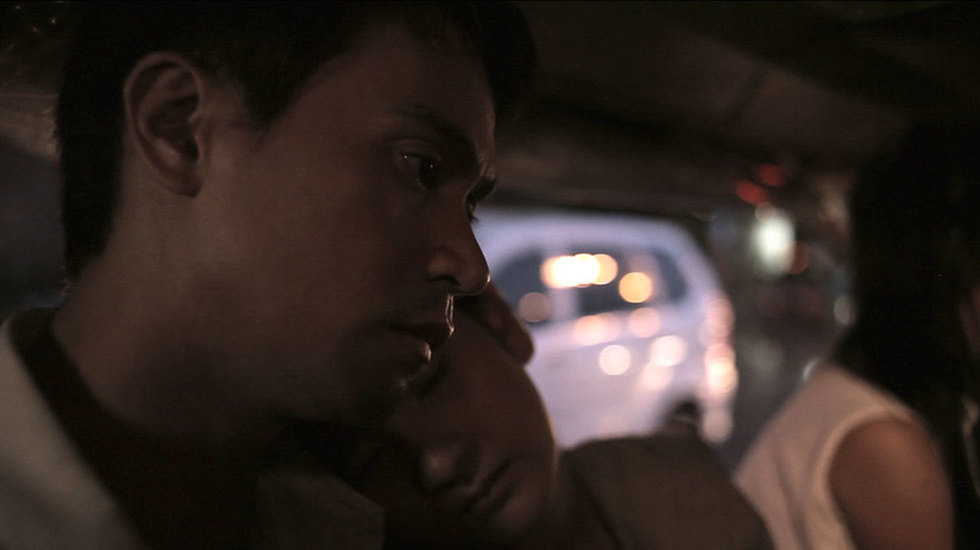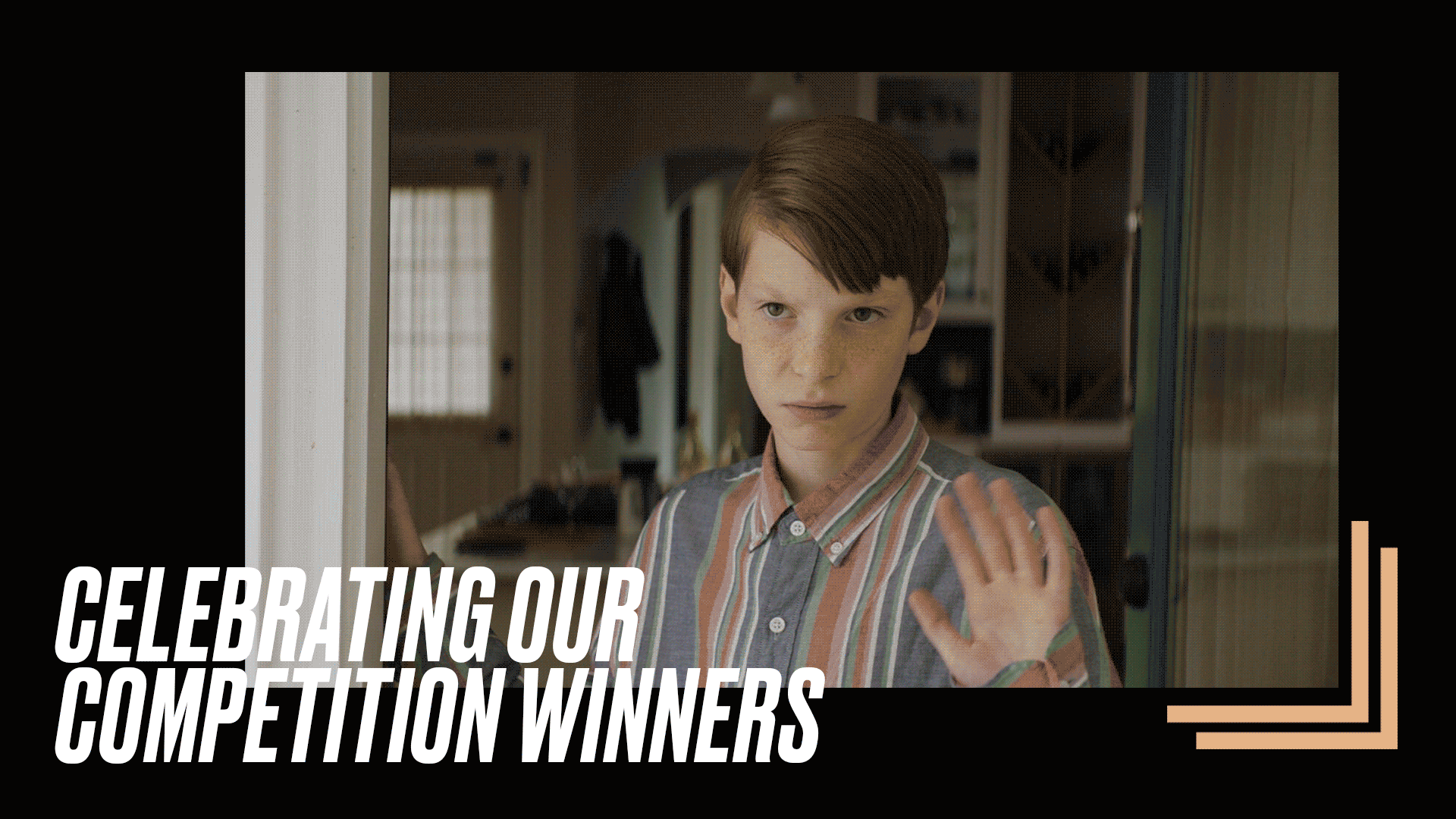
BY KAREN KEMMERLE |
Ron Morales on his Uncompromising Thriller, ‘Graceland’
'Graceland,' winner of the Second Place Henieken Audience Award at last year’s Festival, premieres on VOD/iTunes this Thursday, March 28. Join us as we revisit our interview with writer/director Ron Morales.

Unpredictable and gripping, Graceland mesmerized audiences at the 2012 Festival. Set in the seedy underbelly of Manila, this thriller follows protagonist Marlon Villar (a star-making performance from Arnold Reyes), a father who works as a chauffeur for the family a crooked politician while struggling to care for his young daughter, Elvie, while his wife is hospitalized. When Elvie is mistaken for the politician’s daughter and kidnapped, Marlon is unwittingly thrown into a larger conspiracy where no one, not even he, is blameless.
In the wake of the film’s wide acclaim and standing ovations at last year’s Festival, we were lucky enough to speak with writer/director Ron Morales about his film – only his second -- and its harrowing themes. One of the exciting voices of the Filipino new wave, Morales spoke with us about his positive experience on Kickstarter, the casting process (which led to auditioning his lead actress in a Burger King), and some of the hardships of shooting on-location.
Tribeca: Tell us a little about Graceland. How would you describe the movie?
Ron Morales: I can give a very brief description of Graceland. It’s a kidnapping drama that leaves no one innocent.
Tribeca: Graceland is a disturbing and complex thriller that stays with you long after you’ve left the theater. What inspired you to tell this story?
Ron Morales: Kidnapping and prostitution are big business, not just in the Philippines, but all over the world. Prostitution is a very visual industry in Manila. Red lights and all that are everywhere. As far as kidnapping, it’s a pretty common phenomenon for all social classes. Originally, I was writing a movie about sex workers in the Philippines. When I was researching these women, I knew something had to be done. After listening to their recordings, I had to tell their story or highlight it somehow.
Long story short, we ended up losing funding for that script, and I went back to Graceland. What I did was weave a portion of the prostitutes’ story into Graceland and ultimately it made it a much, much better film. If I could quote someone, I’d quote you. The film does stay with you long after the movie is over. It always sticks with me because I remember those interviews with the sex workers.
Tribeca: As the writer, can you talk about finding the balance between the thriller genre and the weighty themes of kidnapping and prostitution?
Ron Morales: Well, I was constantly writing and re-writing this script while we were shooting. Some of the dialogue wasn’t working, so I would re-write the night before or 10 minutes before we took a take. It is a tough balance, but if you stick to the core elements of your story, it will just naturally come out.
Tribeca: Did you already have Graceland funded before you integrated these kidnapping/prostitution themes into the film? How did your team deal with the challenge of raising the funds?
Ron Morales: It was definitely not an easy task [laughs] before we went to shoot. We needed the help of a couple small investors and friends of the family—it’s one of those films.
Tribeca: Did you use outlets like Kickstarter or IndieGoGo to help find funding?
Ron Morales: That’s ultimately what we used. We went with Kickstarter in the end. We were three weeks into prep and we did not have the funds. We were in the Philippines, captive, and we didn’t have the money to finish. My producers Rebecca Lundgren, Sam Rider and I made all these phone calls and dipped into our own pockets. That’s where the entire post-production budget came from. We put the final cut into the can, and when we got back, we had to go to Kickstarter and we were successful. For a filmmaker, that’s huge.

Tribeca: There are so many great performances in Graceland, especially the one given by Arnold Reyes, who played the multifaceted role of Marlon Villar. Can you tell us about the casting process?
Ron Morales: I have to thank our production manager, Rolly Palmes. He is one who encouraged all these very well-known television actors in the Philippines to audition. The audition process was a little strange over there. It’s unlike like any casting process I had ever seen. We held casting sessions in the children’s playground sections of Burger Kings and obscure coffee shops. The actors were reading all these lines in public. Ella Guevara (who played Elvie) is a huge television star and has this really successful kid’s television show, so everyone recognized her. And she’s bawling at Burger King. We had only three weeks for the casting process before we went into production.
Tribeca: Graceland is extremely atmospheric, with remarkable urban locations. The city of Manila almost became another character and certainly enhanced the film’s impact. Can you talk about your experience shooting on location in the tough city environment? What difficulties did you encounter while filming?
Ron Morales: If anyone is shooting in a third world country or developing country, it is the hardest thing in the world with crowd control and everything. Manila is a nightmare to shoot in. We literally had 1000 people behind us in every single location we shot at, even at the dump site where nobody is supposed to be. People were popping up everywhere. Our special effects guy had a difficult time erasing people from the scenes [laughs].
Tribeca: Was that the most difficult obstacle you faced while filming?
Ron Morales: No, it was safety. We weren’t shooting in the nicest of neighborhoods. One night, after we finished filming night driving shoots at the overpass, we got back to base camp and saw everyone scattering and packing up. We were basically in the middle of a gang war and had to get out of there in 10 minutes. It was scary.
Tribeca: What's the craziest thing (or "lightning strikes" moment) that happened during production?
Ron Morales: The last shot of the movie worked really well under the bridge, which wasn’t originally planned. That the beauty of not having a studio whispering behind your ear. You can make changes and adapt. I went under this bridge to have a cigarette, and I saw this amazing location. There was a guy in a boat, and I ran up to Rebecca and Sam and said, “I need that guy in the boat. Get him.” That shot was in the trailer for the movie and was one of the most beautiful shots in the film. That was the real lightning-strikes moment of the movie for me. And it wasn’t planned. We had a fine location previously in mind. It was a coal factory with beautiful smoke and soot coming out everywhere, but we scrapped it to shoot under the bridge.

Tribeca: Speaking of incredible sequences, one of the most affecting scenes is when Marlon and Chango are forced by the kidnappers to go to a brothel. What was the mood on set? Can you talk about the filming?
Ron Morales: It’s a really difficult scene. The girl who played that role was a non-actor. She was a model, and we tried to keep it as low-key as possible. It was an actual working brothel.
Tribeca: I had no idea that you shot the scene in a working brothel. Were all the locations open for business while you filming there? Was that a real hospital?
Ron Morales: That was a real hospital. It was kind of a dump [laughs]. Most of the locations were real locations, but the brothel was one of the hardest. It would have been really expense to get permission to shoot that scene in Manila, so we had to look on the outskirts where it wasn’t such a big deal. In that scene, most of the girls worked at the brothel, but not as prostitutes. They were bartenders, etc. They just wanted to be background extras. That scene was really difficult to direct using only the two actors, the soundman and the cameraman. The mood while filming that scene is exactly what you as the audience feel.
Tribeca: What's your advice for aspiring filmmakers?
Ron Morales: The best thing I can suggest is to do what we did—which was write, write, write and take a DSL, two or three good actors and get out there and workshop a scene. That’s what I did. All kinds of magic can happen on film (or video nowadays) in the editing room.
Tribeca: What are you most looking forward to at Tribeca?
Ron Morales: I’m really looking forward to inviting most of the Kickstarter backers who are NY-based. I just want them to see their names on the credits scroll. Second, I just want to be at Tribeca. That’s an honor in itself. We’re trying to get four of our actors to New York just so they can see the film.
Tribeca: So you haven’t screened the film for them over there?
Ron Morales: Not yet. They have only heard about the film. I told them that all the performances are great, and they have heard rumors of the film going well. They also supported the Kickstarter campaign.
Tribeca: If you could have dinner with any filmmaker (alive or dead), who would it be?
Ron Morales: I’ve been watching a lot of Lucas Moodysson films, like Lilya 4-Ever. It’s very heavy and dark, which make those films linger with you long after you’ve watched them. He’s a genius director. He also directed Mammoth with Marife Necesito, who was also in my film. The subject matter that he works with and his storytelling are more attuned with how I look at the world.
Tribeca: What’s your favorite New York Movie?
Ron Morales: [laughs] I have to be honest. I’ve never seen this film, but it’s definitely Whatever Lola Wants. I met my wife when she was working on set and now we have a wonderful three-week-old baby.
Tribeca: What would your biopic be called?
Ron Morales: We’ve Got Class—this phrase is a running joke between me and my filmmaker friend, Randy Salo. We started out in the “biz” around the same time struggling to make things happen. Years later, we are both having our world premiere of our films this year.
Tribeca: What makes Graceland a Tribeca must-see?
Ron Morales: It’s a film that most New Yorkers won’t get to see otherwise. It’s something people need to see. I think that Graceland is another addition to the new wave of Filipino cinema that is coming out of my homeland. It’s a Filipino film with Filipino actors. I think it shows the best and worst of the Philippines. It’s something people need to see. I also hope that this story stays with the viewers long enough to discuss its subject matter with friends, family, strangers and/or hop on the internet and research what is happening in the Philippines.
Graceland is available on VOD and iTunes starting this Thursday, March 28 and will open in select theaters on Friday, April 26.

